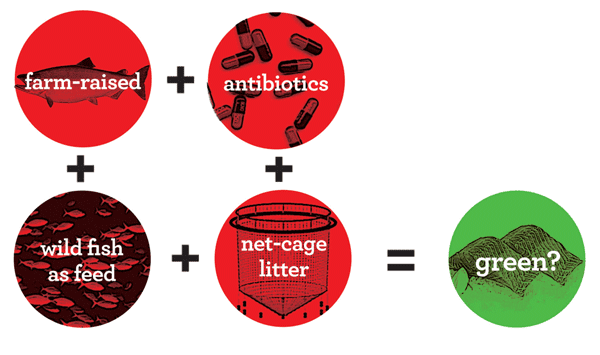Eating Fish May Not be Healthy at All. It Could Even be Harmful!
We are usually told that fish is good for us – it’s a low fat, high protein food, and it contains an abundance of omega-3 and omega-6 fatty acids that our body needs. This might be true, but it all depends on the source of the fish on your plate. Tilapia is one of America’s most popular fish. According to the National Fisheries Institute, this freshwater fish has become the fourth most eaten seafood in the US. It turns out tilapia is always farm-raised, and often imported from China. Eating it might cause you more harm than good. And the same goes for many other farmed fish, such as salmon, cod, sea bass, and catfish.
The Dangers of Farmed Fish
Farmed tilapia has a high inflammatory potential, which could lead to heart disease, asthma, and joint problems. In fact, researchers from Wake Forest University have found that tilapia has higher inflammatory potential than that of a hamburger or pork bacon.
Farmed tilapia contains far less omega-3 fatty acids than some other fish varieties. Omega-3 is anti-inflammatory, and works in conjugation with omega-6 fatty acids. The ratio between the two is very important, and when it’s out of balance, an inflammation can develop.
Generally speaking, farmed fish contain high concentrations of antibiotics and pesticides. The fish live in crowded pools and are given antibiotics to survive. To combat sea lice, strong pesticides are sprayed on them. The conditions are supposed to be particularly bad in China. The Economic Research Service of the US Department of Agriculture reported on alarming conditions in many Chinese seafood farms. There have also been rumors that fish are fed chicken and pig feces, but this has not been confirmed. Nonetheless, if your farmed fish comes from China, it will likely contain high levels of chemicals and antibacterial drugs (nitrofurans). This has also been discovered by Seafood Watch when testing different fish samples.
There are many other chemicals that can be found in farmed fish, including dibutylin and dioxins. Dibutylin is known to impair immune system function, and dioxins have been identified as carcinogens. For example, farm-bred salmon has 11-times higher dioxin levels compared to wild salmon.
What You Can Do
As mentioned above, it is important to know where the fish comes from. For tilapia, the best choice is fish raised in the US, Canada and Ecuador. However, the labeling is not always transparent, and some seafood products are exempt from having to label the food’s origin. Also, there is no way to know if farm-fed fish were raised on a GMO diet. There are no guidelines in place yet that would classify seafood as organic.
We might want to resort to wild caught fish, but overfishing is very damaging for the environment, and there is a lot of collateral damage being done. According to the Sydney Morning Herald, the most sustainable fish to eat are wild whiting, tailor, moonfish, mahi mahi and luderick (black fish). The Australians have also awarded the green label to Australian bonito, sea mullet and trevally, which are great sources of omega-3 fats.
Humanity is hungry for protein, but the question of how to consume fish ethically is a big one, and it yet needs to be answered.
Source: Healthy and Natural World



